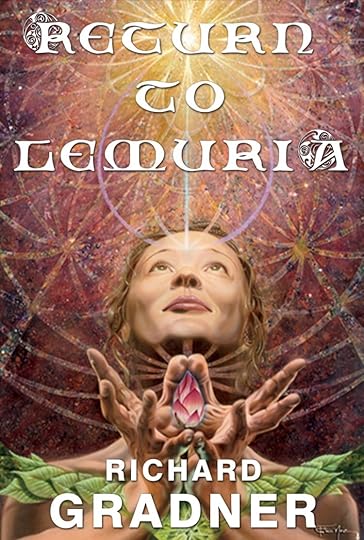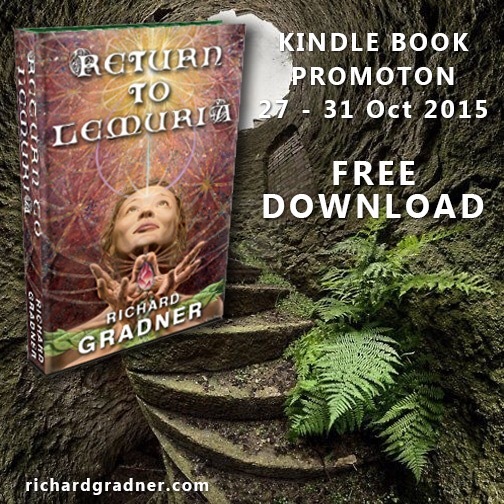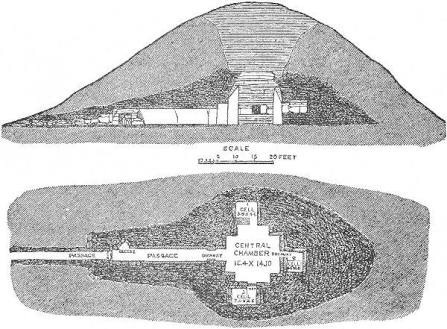Richard Gradner's Blog, page 7
July 1, 2016
75% Off Sale Now On!
June 27, 2016
The Philosophy of Writing
I’ve always had a passion for writing stories but only made the decision to put pen to paper and write my first novel until after I was forty. I remember contemplating the task several times when I was younger and actually made a few feeble attempts at structuring a few storylines and writing a some chapters, but together with a collection of poetry and other musings inside one of those metal ring folders, labeled Creative Writing, that snapped opened and shut with a loud click, they soon gathered dust, stashed away at the top of a cupboard somewhere in my house. I recall being faced with the early vestiges of writer’s block, a frustrating impediment that stifled my creative juices and wrecked my confidence. I had this innate desire to write something different; to create a work of art so unique that it would stand out from the rest of the literature out there, that I found myself never really getting out of the starting blocks for fear of not being able to find the originality that I yearned for.
As the years passed, I believed more and more that it was life’s experience that would give me control of the reins to my ride. I knew that the more I lived, the more I experienced, and it was this experience that would provide the foundation upon which to build upon my writing ability. So what was the turning point? How did I find the courage and inspiration to jump over the final hurdle that would lead me to writing and completing a novel?
Like most would-be writers, I knew that I could write, it was just a matter of actually doing it. But for me, getting it done was, I guess what you could call, a secondary objective. First and foremost, it was still about cracking a storyline so unique that I would surprise myself with its brilliance. My fear was creating a story that was just another fantasy tale or vampire saga; a boring rendition of so many that had come before mine, and so an idea popped into my head that would take me back to a time in my early twenties, when I read a book by Colonel James Churchwood of the British Army. Almost 100 years ago, while stationed in India, he was introduced to a set of ancient clay tablets by an monk he befriended, that told of an advanced civilisation living on a continent called Lemuria in the Pacific, that was wiped out by a cataclysmic event over 12,000 years ago. I decided to use this as the foundation for a story that was jam-packed with everything from magic and prophecy, to modern day New York gangsterism, telekinesis, tribes in the Amazon, Mexican tequila, and a thriving, hidden city, buried deep underground.
It took me twelve months of research, planning and late night session after session in front of my monitor, tapping away at my keyboard, to finally complete my first novel, Return To Lemuria. It was a labour of love; a self-inflicted, learning experience that taught me humility, patience, but above all, that writing was a rewarding effort, fueled by passion and dogged discipline and determination. My masterpiece was now complete and I felt proud and delighted with myself for having conquered a life-long desire. But with all the effort that I put into developing a story that was vastly different from the norm, came the challenge of identifying its genre. Was it Fantasy? Kind of. Was it Historical Fiction? Yes. Was it Adventure? Most definitely. I told people it was James Redfield’s Celestine Prophecy mixed with Dan Brown’s Da Vinci Code. But what is the genre? people asked. The best I could come up with was a Historical Fiction Adventure novel. It was only weeks later that I heard about Speculative Fiction, a definitive genre that for the first time really made sense to me and truly explained my writing style.
Speculative Fiction was first attributed to Robert Heinlein in 1941 and goes beyond standard Science Fiction, Fantasy and Horror to encompass Weird Tales, Amazing Stories and Fantastic Fiction. It may also include other genres such as Mysteries, Alternate Histories & Historical Fiction. Think of the root word – “speculate” meaning, “what if?” But then you may ask, isn’t all fiction speculative? Fiction by definition is untrue, so surely all of it involves some degree of speculation? The real difference between regular fiction and speculative fiction is that speculative fiction is any fiction in which the “laws” of the world in the story that has been written, either explicit or implied, are different than ours. There are many famous books (that have also been turned into movies) that have been defined as Speculative Fiction – from Lord of the Rings and A Game of Thrones, to Tarzan, Dune and The Princess Bride.
So now that the genre void had been filled, I felt even more satisfied with my efforts. But there was still something missing. A gap. A sense of loss. I soon came to realise that the fruits of my labour, even though richly rewarding, were short-lived. The allure of authordom was simply that, a seductive ruse that meant nothing until you had a successful novel under your belt. And by successful, I mean a novel that sells like hot cakes – an occurance that happens to one in hundreds of thousands of would-be authors. I have learnt that as an author, you need no less than three published works to be considered a serious contender, and even then, there is no guarantee because it includes so much more ongoing branding, marketing and promotional effort.
In time, I came to realise that the gap I felt was the time that I missed doing the hard work; putting in the long hours night after night to create my work of art. Because authors are artists. Artists with keyboards as paintbrushes and words as paint. I came to realise that the year I had spent developing my novel, taught me that creating something meaningful with passion was a very gratifying sense of accomplishment that I needed in my life, now that it was gone. So I soon found myself back at my desk, losing myself to the hours and hours of creating my second novel, entitled Unicorn, that I have recently completed (and is due for release on 01 September 2016). And once more, I am both humbled and satisfied by the experience that is now part and parcel of who I am.
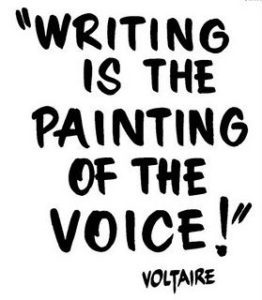
Other posts by Richard:
Finding time to write
The Warrior – A Short Story by Richard Gradner
June 3, 2016
Finding time to write
People often ask me – “where do you find the time to write?”
My response? “I make the time.”
This is not really a good enough answer, so I elucidate.
When you’re in a busy routine of waking up at 6am to get showered, dressed, breakfast, kids to school, work, yoga, kids’ homework, dinner, kids, TV, sleep, there’s not much time for anything else. Weekends are also busy with kids’ sport, house chores and family time and all you really want to do with the time that’s left is chillax.
I chose to write my first novel late at night. It was tough. After a full day’s work, it was hard to be creative and I could often only keep my eyes open for an hour or so. I vividly recall waking up with a stiff neck in front of my PC at 1am on a number of occasions.
It was only after reading Stephen King’s On Writing that I decided to switch to writing 4am-6am for my second novel. King maintains that morning writing is best, writing every single morning of his life. The challenge for me was getting up to write but I’ve always been disciplined (probably due to martial arts practice over the years) and so got over this hurdle after a few months until it became part of my routine. I have only ever needed six hours sleep (thanks to daily yoga and a healthy diet) so the trick was getting to bed by 10pm otherwise the two hours became one or less. The benefits were better focus, alertness and increased imagination. My daily word count also improved as a result of this change.
Making time means sacrificing other things that take up the time in your day. Don’t try and write during lunch time at the office. This is probably the worst time to write. You need a quiet, private space, free from distraction where you can switch off and let your imagination fly.
Choosing to write means that you have to sacrifice something in your day. Once you start writing and develop a passion for it, you begin to value your time and appreciate it more. This has a positive effect on the rest of your life and the time you spend on other less rewarding tasks. Writing from 10pm till midnight meant that I was forced to cut out television. I consciously chose to stop watching series because once you’re hooked on one, it sucks you in for weeks and months at a time. I haven’t given up the box altogether however – I still choose to watch a good movie from time to time and I’m a firm believer in balance and moderation. So switching to the morning slot only meant that I had to sacrifice my morning sleep and adjust to a new routine.
If you really feel that you have to write at night, then give it a try as its a good place to start but I’m an official morning writer and always will be.
About the author: http://www.richardgradner.com/about/
Other blog posts:
The Warrior – A Short Story by Richard Gradner
My Present
April 20, 2016
Gobekli Tepe
My favourite ancient megalithic monument is now a documentary on #nationalgeographic #gobeklitepe
View You Tube Video (1min)
The post Gobekli Tepe appeared first on Richard Gradner.
Fairy tales may be older than we think!
A pair of researchers has conducted a phylogenetic analysis on common fairy tales and has found that many of them appear to be much older than has been thought. In their paper published in Royal Society Open Science, Sara Graça da Silva, a social scientist/folklorist with New University of Lisbon and Jamshid Tehrani, an anthropologist with Durham University describe the linguistic study they carried out and why they believe at least one fairy tale had its origins in the Bronze Age.
Read more at: http://phys.org/news/2016-01-phylogenetic-analyses-fairy-tales-older.html#jCp

The post Fairy tales may be older than we think! appeared first on Richard Gradner.
April 3, 2016
The Warrior – A Short Story by Richard Gradner
The sound of static was broken by the intermittent garble of muted voices that cut into the hazy tendrils of his dream like a belligerent bumblebee, intent on waking him from his place of solace and intense comfort. A pulsating, red light throbbed across the walls of his room, pulling him from his slumber and into a world of confusion and disarray. He panicked at first, imagining that an alien spaceship had landed in the garden and come to abduct him and his family. He watched the Earth shrinking rapidly as they sped up and away into deep, dark space. He turned around and found himself trapped inside the belly of a huge whale as it dived beneath the oceans of the world in search of more unfortunate victims. He sat up in bed and rubbed his eyes. The room swam for a moment. He waited until the giddiness subsided, pulled back the covers and stepped out of bed. He tiptoed to his window, carefully pulled back the curtain and peeked into the night. The flashing red light pierced his eyes, blinding him momentarily. He screwed up his face and blinked hard. He saw two silhouettes, framed by the soft, white light from a torch. They were carrying a stretcher towards the open doors of an ambulance that was parked in the driveway. He recognised his mother standing nearby, arms folded across her pink dressing gown, looking on in earnest.
He sat in the waiting room, as he did almost every day after school, thinking back to that fateful evening so many months ago when his father was taken away after falling violently ill. The doctor said it was his liver, that it was not working properly, and that he would need to spend some time in the hospital for tests, so that they could determine how best to fix it. His condition stabilised at first but then worsened over time. His face became gaunt due to the dramatic loss of weight and his skin turned a pale shade of yellow, until he looked like an emaciated zombie from The Walking Dead.
“Bradley Dustin Timmons.” His mother’s voice cut through the air like a knife. “Get off that thing this instant. Whenever I look at you, you’re playing games and messing about. This is a hospital, not an arcade.”
Brad glanced up at his mother. She clung to her clutch-purse like it was her last prized possession. She wore no makeup and her long, auburn hair hanging past her shoulders was dishevelled, like she had overslept and rushed to get dressed and out of the house to be somewhere in a hurry.
“I’m on the web, mom,” replied Brad gratingly.
“Even worse,” she retorted sharply. “I hope you’re not on one of those disgusting websites that, that…”
“No, mom. I’m reading up about liver failure.”
Felicity stared wide-eyed at her son. “Oh.”
“It says here that a deteriorating liver can be saved through a he-pa-tecto-me.”
“A what?”
“A hepatectomy.” Both Brad and Felicity looked up as Doctor Browne stepped into the waiting area.
Felicity jumped up off her chair. “How is he Doc? Any change?”
“Mrs Timmons.” Doctor Browne nodded. “I’m afraid not. His condition is stable but the cirrhosis has caused so much liver scarring that his body is finding it increasingly difficult to purify his blood.”
“But surely the medicine…”
“The liver also needs to process medicines in the body and right now it cannot do a good job of that, so his medicine isn’t having much of a positive effect at the moment. I’m sorry but we are doing all that we can.”
“What about a hepatectomy?” Brad stood up as he asked the question.
It was the first time that Brad witnessed Doctor Browne smile. “A laparoscopic living donor hepatectomy is quite a big deal, my boy. Do you understand what’s involved?”
Brad shrugged his shoulders, raised his eyebrows and pulled his mouth into a frown.
Doctor Browne placed a hand on Brad’s shoulder. “Let’s sit down for a moment.” Doctor Browne pushed his glasses up the bridge of his nose and took a deep breath. “The word hepatectomy comes from both Latin and Greek. It means part or full surgical removal of the liver. A living donor hepatectomy means that the compromised or damaged part of the liver in a patient is removed and then replaced with healthy liver tissue from a living person.”
“Where do you find such a person?” asked Brad.
Doctor Browne was silent for a moment. His voice softened. “Well, first it’s important that the donor has the same blood type. Secondly, there must be an emotional connection.”
Brad stared at the doctor. His head reeled as self-realisation set in. Tears glazed over his eyes. He blinked them away. “I’ll do it.”
“Do what? Brad?” Felicity’s voice trembled.
“Mrs Timmons.” Doctor Browne turned to Felicity. “There is a very good chance…”
“No!” Felicity shrieked. Tears streamed down her face. “I’m not losing my boy as well. He’s only fifteen. Bradley. Come here this instant!” Brad stepped over to his mother. She reached out her quivering arms and pulled him into a fierce, protective embrace.
“Mrs Timmons,” said Browne. “If you want to save your husband, then this is his best chance you have. It’s a relatively safe procedure.”
“But then why do you need my Bradley?” She sounded hysterical.
“Well we can only know for sure if we need him after we do a blood test.”
“No. Don’t touch him!” She crushed Brad’s face against her shoulder.
“Mom, you’re hurting me.” Brad pushed himself away from his mother’s desperate grip.
“Mrs Timmons. Brad is not yet eighteen, so you would have to give your consent for us to proceed.”
Felicity opened her mouth to speak but Doctor Browne raised his left hand. “Please, Mrs Timmons, just give me a chance to explain why I believe that this is a good idea.”
Felicity widened her eyes but promptly closed her mouth.
Doctor Browne continued. “Should young Brad here be a suitable donor, we will remove a section of his liver and transplant it inside his father’s body, replacing the liver scar tissue that cannot be naturally repaired. The good news is that Brad’s liver will automatically regenerate over a period of just a few weeks.”
“What about his father?” Felicity’s voice croaked.
“With any surgery comes a fair amount of risk,” said Browne. “And in Jeffery’s case, there is risk of infection, clotting and excessive bleeding, but, the potential outcome far outweighs the risk associated with this kind of procedure. Right now your husband has a higher chance of dying if we don’t attempt this operation.”
“Ohh.” Felicity sobbed loudly. Her legs buckled.
“Mom!” Instinctively, Brad reached out and caught his mother. He helped her lower back down onto her chair. “It’ll be all right,” he tried to reassure her. “Doctor Browne says I’ll be back to normal in no time. And so will Dad. You’ll see.”
“This is all just too much for me.” Felicity lifted her head to look at Brad with bleary eyes. “You’ve all I have left!” Brad felt the tears return to his eyes. He hugged his mother encouragingly. She clung to him, refusing to let go.
“Over here, Mrs Timmons.” Doctor Browne pressed his index finger onto a line at the bottom of the page. Felicity’s hand shook as she signed the form. “Thank you. Right, young man, let’s go and get you prepped.”
The blood tests had come back positive. Brad was a fit – a suitable donor. Before the results, he felt calm, relaxed, but now, as he followed the Doctor, reality set in. His senses were on high alert. Everything was amplified. Tenfold. The beeping sounds from the monitors as he passed them hurt his eardrums, and the nauseating smell of hospital disinfectant burned his throat and caused his stomach to twist and turn with discomfort. He pictured his liver, a deep, dark red mass of meaty blood and tissue, writhing in pain as a razor-sharp scalpel sliced through its core.
He squeezed his eyes shut and whispered urgently to himself. Just breathe, Brad. Take deep breaths. That’s it. In and out. In and out. Everything is going to be just fine. You can do this.
The operating table was hard and the lights bright and white, as Brad lay on his back staring past them at the ceiling. The Doctor looked down from above. The corners of his eyes pinched together behind his glasses. Brad could see that he was smiling behind his mask. He gave Brad a thumbs up. Brad returned the gesture and smiled bravely. His heart thumped inside his chest like a wild creature wanting to jump right out of its cage.
Doctor Browne placed a small, transparent mask over his face. “Brad, I want you to count backwards from ten to one,” he instructed in a muffled voice.
The sickening gas was in his mouth, his nose and then deep inside his lungs. Ten. The room began to spin like he was falling down a deep, dark hole. Nine. The bright lights began to fade. Eight. Darkness.
His eyes were glued shut. He wanted to rub them but he couldn’t feel his hands or lift his arms. Panic set in. His tongue was thick and swollen in his mouth and his throat was as dry and rough as sandpaper. The first sound that came to his ears was the soft thumping of blood inside his head, followed by a constant beeping above and behind him. Sensation gradually came back to his fingers. They felt like swollen sausages at the end of his heavy arms. He instinctively reached under the covers with his right hand and touched a thick bandage across his waist. And then his memory returned in a rush. He quickly pulled his hand away and forced his eyes open.
“Brad!” came a familiar voice. “You’re awake.”
He tried to speak but all that came out was a wheeze of air.
“Here. Drink this.” His mother raised a glass of water to his lips. His mouth absorbed the water like a sponge.
“How’s Dad?”
“He’s asleep. Doctor Browne says the operation went well. How are you feeling?”
“A little groggy, but Okay.”
“Oh Brad. I was so worried about you.” Felicity squeezed his hand.
“When can I see him?”
“Don’t even think about it,” she said, alarmed. “You need to get some rest. You’ve just had a major operation.”
Brad took a deep breath, closed his eyes and fell fast asleep. When he opened his eyes again, a nurse walked into the room with a tray of food. His stomach rumbled in anticipation.
“Good morning Mr Timmons,” she sang. She sounded like one of those people who was permanently happy from the moment she woke up in the morning. A wide smile stretched across her face, revealing a set of big, white teeth. “How are you feeling today?”
“Much better, thanks. I think I need the loo.”
“Sure, no problem. I’m sure you can manage on your own.” She grinned.
“You mean I’m OK to walk?”
“Yep. Why don’t you give it a try?” She pulled back the bed covers.
Brad looked down. He was wearing one of those loose, cotton hospital gowns. He slid his legs off the bed and slowly moved into a sitting position. He felt the bandage across his waist pull taught. He shifted his weight forward until his feet touched the ground. He straightened his legs and stood up.
“Your father is just next door. You can visit him if you like?”
Jeffery turned his head as Brad stepped gingerly into the room. He smiled weakly. “You don’t know how relieved I am to see that you are OK, my son. You are the bravest person in the world. My warrior.”
Brad grinned as a torrent of tears flowed freely down his face.
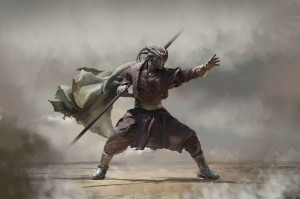
http://www.richardgradner.com/my-present/
http://www.richardgradner.com/breathe/
http://www.richardgradner.com/neolithic-monuments-in-britain/
http://www.richardgradner.com/on-writing/
The post The Warrior – A Short Story by Richard Gradner appeared first on Richard Gradner.
November 23, 2015
My Present
After recently having completed my 45th revolution around our sun on this beautiful planet, I find myself reflecting over my life, and one word comes to mind. Gratitude.
Gratitude to G-d for my soul and to my parents for having conceived me. It’s not often enough that we reflect on the privilege bestowed upon us that is life. We are too busy involved in it to realise that it is indeed the biggest miracle. A miracle in motion. From “the birds and the bees, to the flowers in the trees”, life is going on around us all the time. We are born into this world with the gift of life – it is not earned – and so, like too many things, we take it for granted and only treasure its value when we begin to experience its demise in some shape or form. Hardship and adversity are by far its strictest teachers, preaching their lessons learnt mostly through personal experience. By constantly striving to live life to its fullest through the consistent exercise of the body, mind and soul, gives one the opportunity to really appreciate the miracle of life. Gratitude.
Gratitude to the universe for having provided me with my wife – the most beautiful soul to share life’s pleasures with. Only when you give yourself over to someone else, do you truly appreciate the fact that life was always meant to be shared, that we are living but half a life without a soul-mate. Gratitude.
Gratitude for being blessed with healthy seed to produce two more miracles of life – my sons, my offspring, my lineage. Gratitude.
Gratitude for all the other things that sustain our lives on this magnificent planet – the air we breathe, the food we eat and the water that we drink. Gratitude.
“Feeling gratitude and not expressing it is like wrapping a present and not giving it” – William Arthur Ward
October 28, 2015
Breathe
My Yoga experience started 15 years ago, after over a decade of martial arts. But it’s only been in the last four years that I have exclusively dedicated my health and fitness regime to daily Yoga practice and the true benefits are only just beginning to emerge…
I went to a 90 minute Vinyasa class in Joburg last night that made me realise just how important foundational Yoga practice can be. For years I’ve been doing (and loving) 60 minute hot-power classes. I love the flow, increased heart rate and energy of each class but it’s really important to hold poses too. In fact I’ll go on to say that at least 5, long, deep belly-breaths per pose are vital to deepening your practice and truly reaping the rewards. Also an extra 30 minutes in a class means a slower and more powerful practice that leaves you feeling that more was accomplished; that you made your body stretch a little further and your mind more enlightened as a result.
Unfortunately, we live in a fast-paced, quick-fix world, where prople want instant gratification and immediate results, so a slower, more meaningful 90 minute class is not always possible, but I urge you to consider incorporating this kind of practice into your regime every now and again. It’s really worth it.
Enjoy the journey.
Namaste
October 27, 2015
Free. Gratis.
Own a Kindle? Then this one’s a no-brainer. I’m running a promotion for my novel Return To Lemuria over the next 5 days. It’s FREE to download from 27-31 October. So if you like adventure, magic and ancient civilisations, then visit this link now.
October 24, 2015
Neolithic Monuments in Britain
A fascinating story about ancient man-made monuments, some over 5,000 years old scattered all over Britain. http://englishhistoryauthors.blogspot...
These constructions all appear to have one thing in common: they were built with great accuracy and align perfectly with either the winter or summer solstice. Of course many unanswered questions arise: Why were they built? Did they aid the people living at the time to understand the universe? Agriculture? Seasons? Were they religious sites? How could people living so long ago have the means and intellect to build such complex structures?
Some structures are estimated to have taken 300 men 3 years to build. That’s a lot of manpower and effort to build a mound with a tunnel through it!

